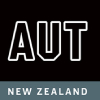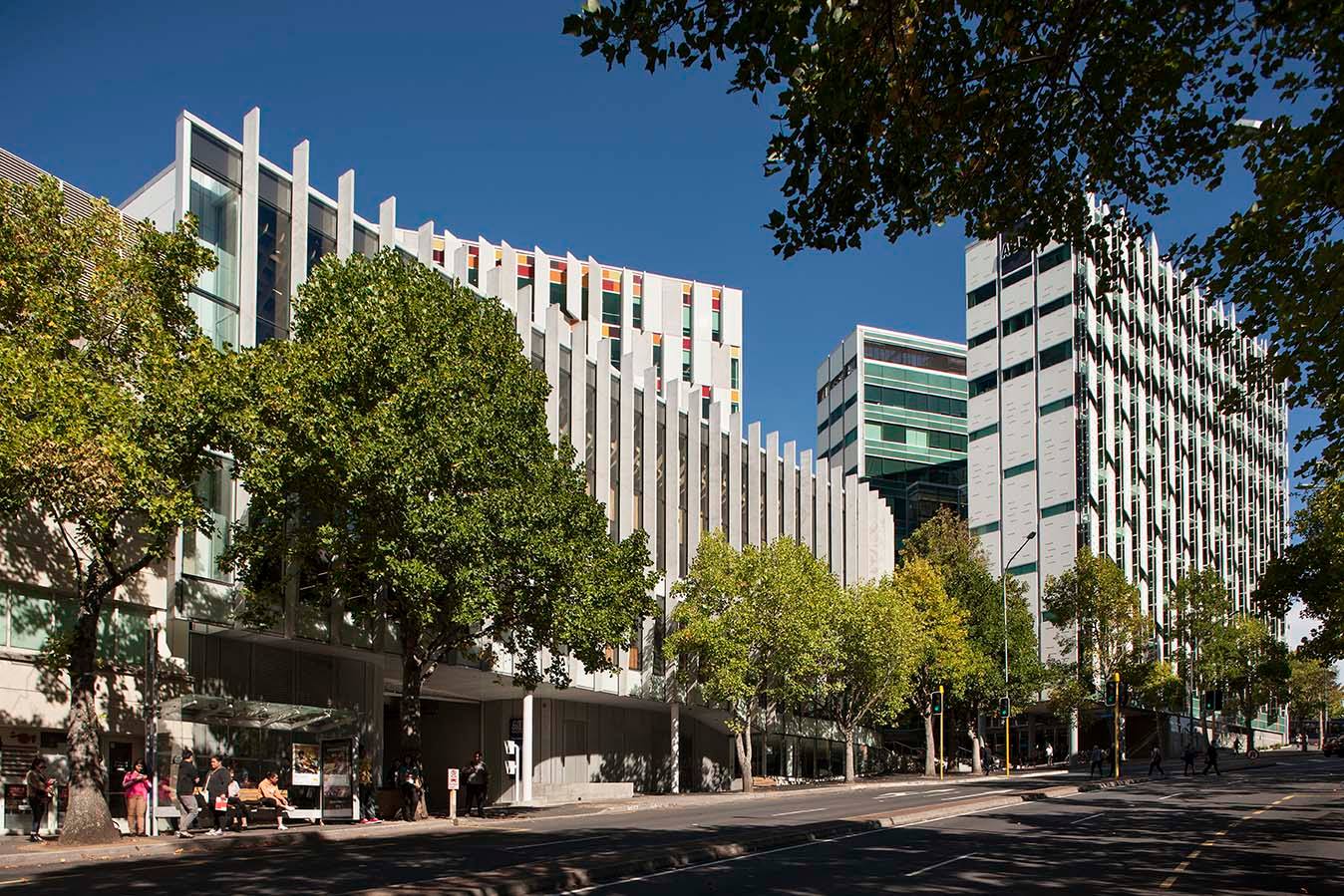55 Wellesley Street East, Auckland Central, New Zealand
Career Counselling

Auckland University of Technology is ranked in the top 1% of universities in the world. Located in New Zealand’s largest city, its history stretches back to the 19th century, when the Auckland Technical School opened its doors. It is home to over 28,000 students, with 12% of these being from overseas, originating from almost 100 different countries. It employs over 4,000 members of staff.
AUT contains 5 academic Faculties (Business, Economics, and Law; Culture and Society, Design and Creative Technologies; Health and Environmental Sciences; and Māori ...
| Establishment year | 1895 (as Auckland Technical School) 2000 (University status) |
| Total Students | 28,158 (20,118 equivalent full time students) |
| International Students | 3,273 |
| QS World University Rankings 2024 | =407 |
| Campus Size | N/A |
| Total Number of Campuses | 3 (North, City, South) |
| University Website | https://www.aut.ac.nz/ |
| No. of Schools and Divisions | 5 Faculties (Business, Economics and Law, Culture and Society, Design and Creative Technologies, Health and Environmental Sciences, Māori and Indigenous Development) |
| Nobel Prize Winner Alumni | 0 |
| No. of Education Programs | 123 (undergraduate), 168 (postgraduate) |
| Student to Faculty ratio | 12.3:1 |
Auckland University of Technology offers undergraduate and postgraduate courses through 5 Faculties, which are further subdivided into schools and departments.
Within and across these, AUT has more than 60 research centres, institutes, and networks that conduct high impact research, often in partnerships with other universities and with industry. Research centres are the most numerous: the 50+ centres include the Institute of Biomedical Technologies, the Centre for Food Science, and the Centre for Data Science Research. There are 9 Research Institutes within the University, including the Institute of Robotics and Vision, and the New Zealand Tourism Research Institute. The Traumatic Brain Injury Network is the only research network currently operational.
Domestic applicants to undergraduate degrees at AUT are admitted based on their NCEA Level 3 performance, or equivalent CIE or IBDP grades. For certain highly competitive courses (for example, the Bachelor of Engineering), the level of performance in one of these examinations is used to rank applicants.
Undergraduate international applicants to the University should aim to satisfy two criteria. First, high school qualifications vary by country, so AUT maintains a web page with the required minimum qualifying high school performance criteria sorted by all the countries from which the University usually receives applications. For students who do not have English as their first language, evidence of English communication skills must be provided through a recent IELTS or equivalent examination certificate.
International entry requirements for postgraduate courses vary by course. Most courses have a set of minimum criteria as follows: a successfully completed undergraduate degree in the same field as the PG course being applied to. To show proficiency in English, IELTS scores are preferred, but the University also accepts scores from many other examinations e.g. TOEFL, PTE, etc.
All applications must be submitted through the University’s online application portal; the estimated time to finish and upload an application is 20 minutes (assuming that all information and document scans are kept ready in advance).
Domestic students should first check application deadlines: submissions for Semester 1 close in early December, and for Semester 2 by the end of April. Once they have filled out the application form from the link above, and uploaded any supporting documents required, the University gets back to them with one of four replies: an unconditional offer of admission, a provisional Offer of Place (where more qualifications are required to be completed before admission can be completed), a rejection, or a “decision pending” reply.
International applicants should apply well before the deadlines for domestic students; this is done in order to get a visa in time and travel to New Zealand after an offer has been made. The remaining steps are similar; the university sends a decision in approximately one week for UG applicants and in one month for PG candidates. Once an offer has been made, international students can pay fees, enrol, and purchase the insurance necessary to confirm their place.
Undergraduate domestic students pay annual tuition fees between $7,669 and $8,653 for most courses, with the highest fees usually seen in the Faculty of Design and Creative Technologies.
International undergraduate students pay tuition fees that range from $32,074 per year (for example, for Arts and Education degrees) to $42,674 p.a. (for Architecture degrees) and $44,774 per annum (for the Engineering Technology degree).
Domestic postgraduate students pay annual tuition fees between $8,328 and $10,277 for most courses, with the highest fees usually seen in the Architecture and Engineering courses. MBA students pay $30,384 for the whole course, which takes slightly more than a year. Undergraduate honours students pay approximately the same as postgraduates do.
Postgraduate international students pay tuition fees that range from $37,274 per year (for example, for Communication Studies degrees) to $43,974 p.a. (for Engineering Project Management degrees) and $56,361 (for the MBA degree over a total of 15-18 months).
All UG and PG students have to pay additional fees levied by the University. The Compulsory Student Services Fee pays for shared facilities like sports and student activities: it entails a payment of $1074 in 2023. Certain courses, especially those related to Health Sciences and Medicine, may charge additional fees for equipment or field trips of up to $400 per year. All international students must have both medical and travel insurance packages in order to study at AUT.
Living costs form a substantial portion of the annual budget. Accommodation spending depends on the venue: of the three options in the City and North campuses, the small Wellesley Student Apartments are the lowest priced, at $11,800 per year, with the Te Āhuru Mayoral Drive Student Accommodation prices going up to $16,920 per year. These are catered, and hence include food costs as well.

AUT has three campuses located within the city of Auckland. The City Campus is the largest; it is located in the city’s Central Business District, and houses most of the academic units and the University administration. North Campus hosts a few academic programmes (e.g. education and health sciences), and is home to the largest gym in the university, in addition to student accommodation facilities. The AUT South Campus has a large modern building that contains many study areas and classrooms. The university also maintains a presence at other sites, including the AUT Millennium Institute, which houses sports training facilities, an astronomical observatory, and the Centre for Refugee Education.
The AUT City Campus features the Te Āhuru Recreation Centre, which is open only to students of the University. This is simultaneously a fitness, indoor sport, and social activity hub. Dance and exercise studios enable group fitness activities that are regularly scheduled. There are venues and rooms where clubs can meet and conduct activities, and common areas with large screens that can be used to watch movies and live sports telecasts. The sports court can be used for multiple different sporting facilities, and the gym is well equipped with a cardio and weight room.
AUT students can take advantage of the sports opportunities that the University provides at every level of competition. They can join social sport teams like netball and 7-a-side football or sign up for sports clubs, playing basketball, ultimate frisbee, and so on. At the next level, there are sports tournaments held among the various halls of residence, for students living in University housing. At the highest level, the best athletes can represent the University in the UTSNZ National Tertiary Championship.

The AUT Employability and Careers Team helps students with the following:
The team also sets up career fairs and networking events; the ELAB Online tool allows students to access resources virtually, sign up for interviews, and express interest in open positions.
The high cost of education at AUT, especially for international students, leads many of them to apply for scholarships. The university maintains a detailed database of all available scholarships, where interested students can use filters to find financial aid relevant to their level of study and country of origin.
There are many scholarships available for international students studying at AUT, and they cover different aspects of the fees payable. For example, the AUT International Student Accommodation Scholarship can be awarded to up to 250 applicants, and entails 50% off on the accommodation cost for the Te Āhuru Mayoral Drive Student Accommodation. The AUT International Excellence Scholarships are open to students from both South Asia and the ASEAN countries of Southeast Asia. They entail an award of $5,000 toward tuition fees for a year and are offered to ten students.
There are also scholarships available to students from developing countries (Manaaki New Zealand Scholarships and Commonwealth Scholarships for postgraduate students), and these are awarded based on an application in which the candidate outlines how the skills learned at AUT will be used to positively impact the community and economical and social welfare of the home country.
